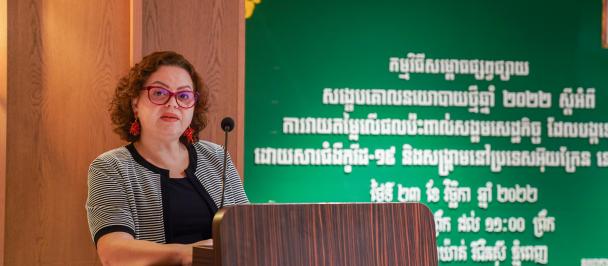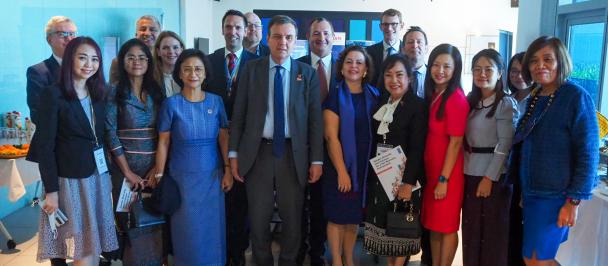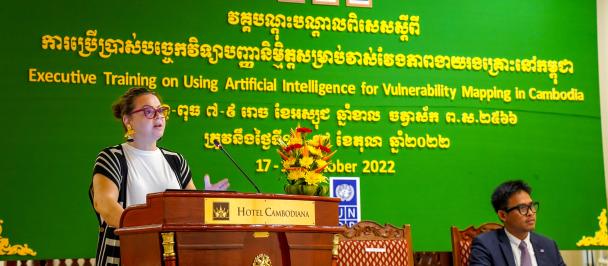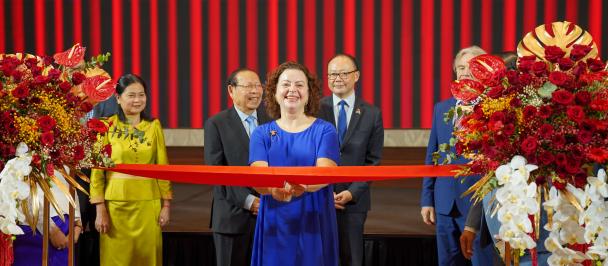Cambodia’s COVID-19 Cash Transfers Show Significant Benefits, says a New Report
July 27, 2022
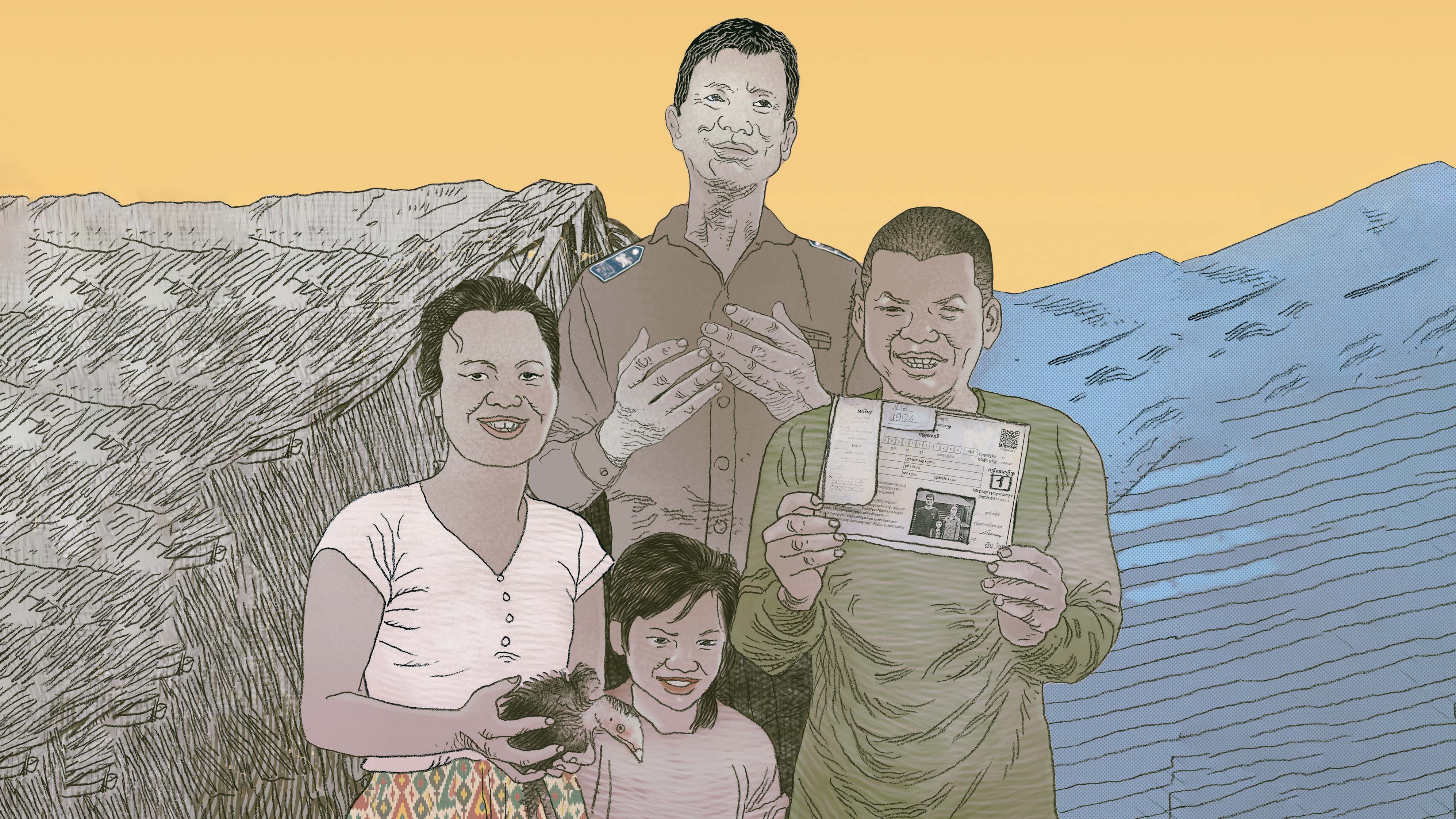
Read the speech here | Download the report here
Phnom Penh, 27 July 2022 – A report on the socioeconomic impacts of Cambodia’s COVID-19 cash transfer programme was launched today in Phnom Penh to an audience of national and local government officials, development partners, and civil society organizations. The report was produced by the UN Development Programme (UNDP) and the General Secretariat for the National Social Protection Council (GS-NSPC) with funding from the Government of Australia, employing the use of both micro and macro level evaluations to assess the impact of the programme which has supported around 700,000 poor and vulnerable households.
The new report outlines findings from a seven-month longitudinal study, showing that the COVID-19 cash transfer programme had significant positive impacts across human development dimensions and socioeconomic indicators including food security, children’s education, savings, debt repayments, productivity, healthcare, and gender empowerment. Macroeconomic modelling also suggested that the programme helped to stimulate GDP growth by 0.55% in 2020 and 0.45% in 2021, reduce poverty rate by 2.7% in 2020 and 3.4% in 2021, and reduce unemployment rate by 0.57% in 2020 and 0.62% in 2021.
UNDP Officer-in-Charge Sonali Dayaratne emphasized the importance of the evidence presented by the new report, “to inform further investments in social protection that can effectively support the most vulnerable,” and ensure no one is left behind. “Evaluating and actively learning from the experiences of households and the impacts the cash transfer programme has had on their lives,” she said, “are essential building blocks for a more inclusive social protection system in Cambodia.”
“The COVID-19 Cash Transfer Programme for the Poor and Vulnerable Households is one of the instrumental interventions that was introduced by the Government of the Kingdom of Cambodia with the spirit of proactiveness, realism and responsiveness to provide social protection to poor and vulnerable households to mitigate their vulnerabilities during the pandemic,” said H.E. Dr. Phan Phalla, Secretary of State of the Ministry of Economy and Finance. “The results of this study not only illustrate the effectiveness and transparency of the programme implementation but they also crystalize the role of social assistance intervention in improving their livelihood and stimulating the economy.”
“As a neighbour and friend, Australia is committed to working with a broad range of partners to develop practical ways of improving the lives of all Cambodians,” said First Secretary Benita Chudleigh of the Australian Embassy. “We congratulate the Government of the Kingdom of Cambodia for utilising the IDPoor database, which Australia has helped to establish over the past decade, in order to target cash transfers towards those most in need,” said Ms. Chudleigh.
UNDP supports the Government of the Kingdom of Cambodia in its efforts to advance social protection, including through the piloting of a graduation-based approach to social protection that transfers assets to the poor instead of cash alone. UNDP has also supported response and recovery efforts from COVID-19, including initiatives that work towards social protection, inclusive and sustainable growth, equality, gender, and inclusivity, towards Cambodia’s achievement of the 2030 Agenda and the Cambodian Sustainable Development Goals.
Ends
For media inquiries, please contact:
- Mr. Im Samruol, UNDP Cambodia’s Communications Analyst at samruol.im@undp.org
- Ms. Heang Kanhary, GS-NSPC’s Communication Specialist at kanharyh@gmail.com
- Australian Embassy, Media.Cambodia@dfat.gov.au

 Locations
Locations
